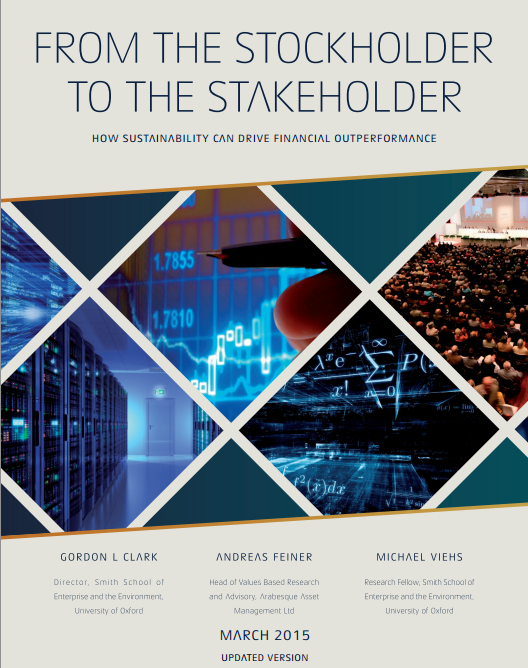Code Green Solutions


GRESB is based on a foundation of evidence supporting the relevance and materiality of Environmental, Social, and Governance information for institutional investors.
A new report titled, “From the stockholder to the stakeholder: how sustainability can drive financial outperformance,” is the latest and perhaps most comprehensive survey of connections between ESG data and investment. It’s no surprise that this massive review finds yet more evidence of strong, positive correlations.
This big study examined 200 academic papers plus a variety of reports, newspaper articles, and books. The take away messages are impressive:
These findings – from an exceptionally large number of studies – make it clear that ESG information is directly relevant to corporate management and material to investment decision-making. This leads to two general conclusions: First, savvy institutional investors can use ESG information to manage risk and potentially generate superior returns. Second, it is increasingly difficult for institutional investors to justify not at least considering ESG information for every prospective investment.
The report also offers some important case studies illustrating specific dimensions of corporate leadership. One particularly notable example, Walmart’s long-term commitment to sustainability has allowed it to gradually decouple growth in sales from growth in corporate greenhouse gas emissions. This transition is central to a low carbon economy where economic growth is separated from environmental impact. Walmart shows that can be achieved for one of the largest enterprises on the planet. Clearly, this is model and an inspiration for many firms to follow.
This extensive review provides further evidence that institutional investment is turning a corner. In the past, consideration for ESG may have been the exception, focused primarily on investment screening and concern for various social and environmental performance issues. Today, ESG is part of doing business. ESG information helps understand investment risks and opportunities. While it certainly provides important information on social and environmental performance, it also provides directly relevant information on the quality and character of entire organizations. As shown in the review, this information has repeatedly been shown to correlate with operational performance and returns.
These observations underpin the authors’ key conclusion “…it is in the long-term self-interest of the general public, as beneficiaries of institutional investors… to influence companies to produce goods and services in a responsible way. By doing so, they not only generate better returns… but also contribute to preserving the world they live in for themselves and future generations.” Well said.